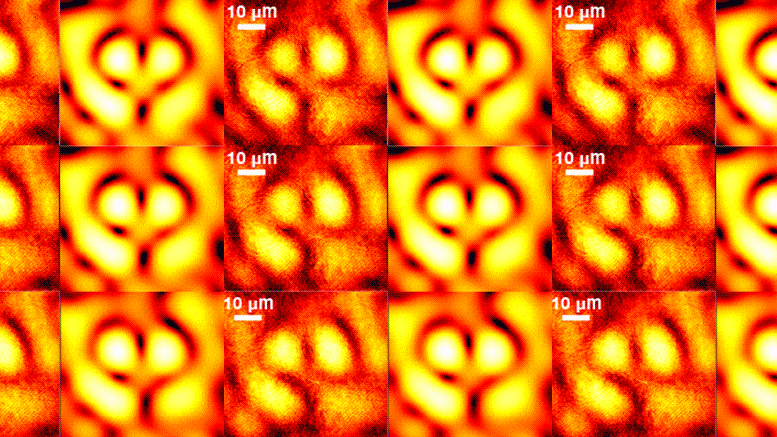“You can also engineer dead zones in radio waves or silent zones in acoustic waves,” said Lim. “This research points to the possibility of designing complex topologies in wave physics beyond optics, from electron beams to acoustics.”
When we think about singularities, we tend to think of massive black holes in faraway galaxies or a distant future with runaway AI, but singularities are all around us. Singularities are simply a place where certain parameters are undefined. The North and South Pole, for example, are what’s known as coordinate singularities because they don’t have a defined longitude.
Optical singularities typically occur when the phase of light with a specific wavelength, or color, is undefined. These regions appear completely dark. Today, some optical singularities, including optical vortices, are being explored for use in optical communications and particle manipulation but scientists are just beginning to understand the potential of these systems. The question remains — can we harness darkness like we harnessed light to build powerful, new technologies?
Now, researchers from the Harvard John A. Paulson School of Engineering and Applied Sciences (SEAS) have developed a new way to control and shape optical singularities. The technique can be used to engineer singularities of many shapes, far beyond simple curved or straight lines. To demonstrate their technique, the researchers created a singularity sheet in the shape of a heart.



